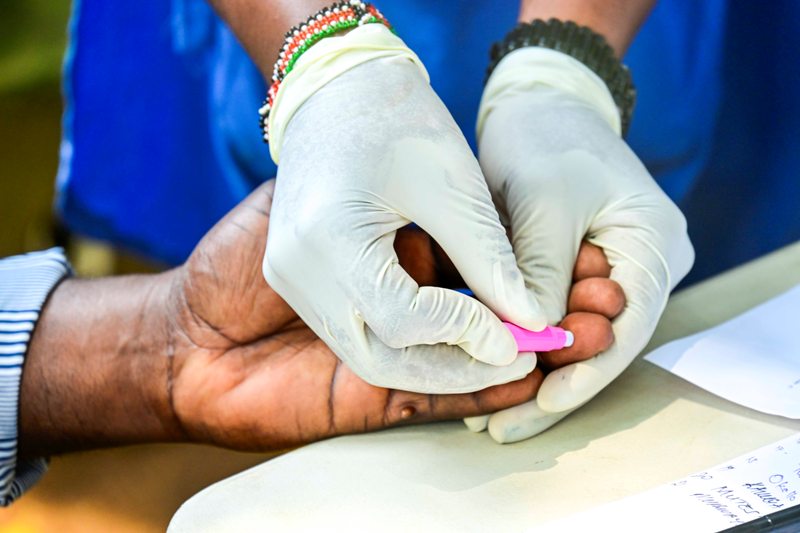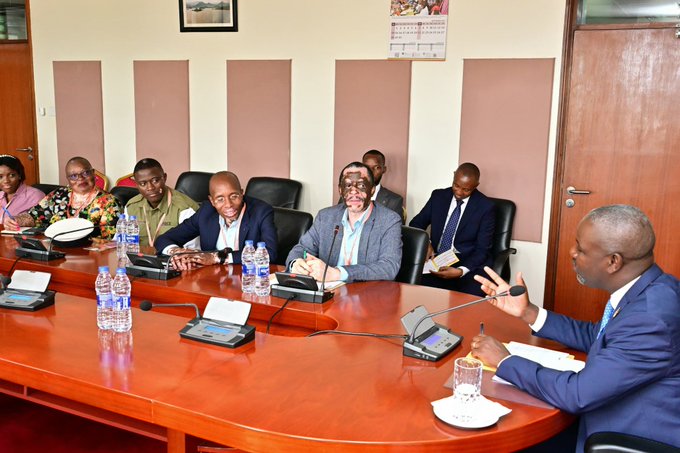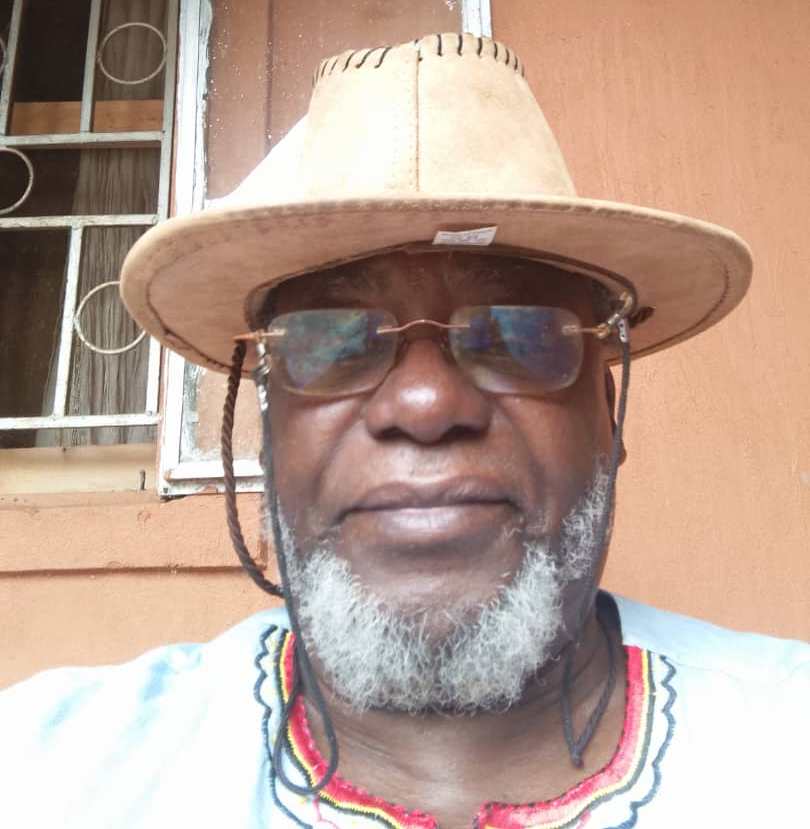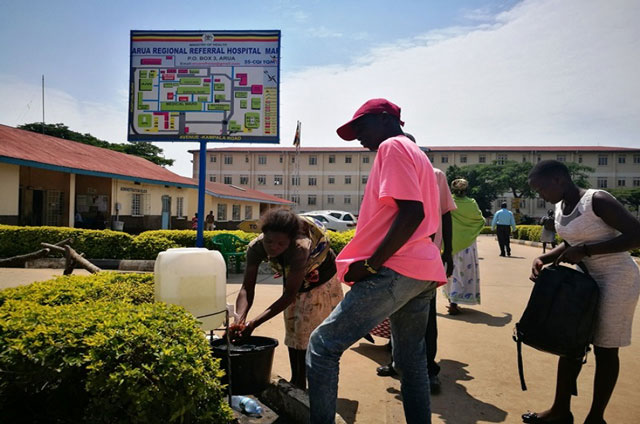State House urges vigilance in fight against HIV, TB ahead of 2030 Goal
The initiative, aimed at raising awareness and strengthening prevention efforts among staff and the wider public, underscored Uganda’s commitment to eradicating HIV/AIDS as a public health threat by 2030.

The State House this week convened a comprehensive health camp under its HIV and Tuberculosis (TB) mainstreaming program, calling for renewed national vigilance in the fight against communicable and non-communicable diseases.
The initiative, aimed at raising awareness and strengthening prevention efforts among staff and the wider public, underscored Uganda’s commitment to eradicating HIV/AIDS as a public health threat by 2030.
Organized by the State House Medical Department, the week-long event brought together government officials, medical experts, civil society actors, and faith leaders to emphasize the critical roles of prevention, testing, and treatment.
Investing in Health for National Productivity
Opening the camp, Benon Twinobusingye, the Assistant Commissioner and Head of Human Resources at State House, who represented the State House Comptroller, Jane Barekye, highlighted the intrinsic link between staff well-being and national productivity.
“The main objective of this camp is to continuously raise awareness about TB, HIV, AIDS, cancer, and other diseases that threaten our people,” Twinobusingye stated. “As you might all be aware, the National Development Plan emphasizes investing in the promotion of people’s health, which constitutes a fundamental human right for all Ugandans.”
He shared a poignant reminder of the urgency, noting the State House’s loss of a staff member to Hepatitis B a year prior. Good health, he stressed, is essential for a motivated and productive workforce across the nation.
Dr. Elijah Ssemaganda, Assistant Director of the State House Health Monitoring Unit, echoed this sentiment, emphasizing the importance of proactive health measures. “If today we can achieve the goal of public awareness and call upon all of us to go for health checks, then we shall be good to go,” he urged participants, also appealing for blood donations as a “lifesaving commodity.”
Uganda’s Enduring HIV/AIDS Burden
Despite significant strides, Uganda, however, continues to grapple with significant health challenges. Tom Etii of the Uganda AIDS Commission provided a sobering account of the current HIV situation, acknowledging President Yoweri Kaguta Museveni’s four-decade leadership in the fight and First Lady and Minister of Education and Sports Maama Janet Museveni’s championing of mother-to-child transmission elimination.
According to Etii, 1.5 million Ugandans, out of a population of 45 million, currently live with HIV. While 1.3 million are on treatment – costing the government up to 1.4 trillion shillings annually – the nation recorded 37,000 new infections last year alone.
“That means every hour, five Ugandans get infected, and every day, 100 new cases are registered. In the same year, about 20,000 people died due to AIDS-related illnesses. That translates into 57 deaths every week,” Etii revealed.
He attributed the persistence of new infections to multiple sexual partnerships, transactional sex, low condom use, and a concerning complacency among men who often shun testing and treatment. He called for a return to faithfulness, responsibility, and integrity to curb the spread, specifically urging men to protect young women and girls, noting the strong link between high rates of teenage pregnancies and HIV transmission.
Breaking Barriers: A Personal Testimony and New Interventions
The health week also featured a powerful testimony from Rev. Canon Gideon Byamugisha, Africa’s first priest to publicly declare his HIV-positive status. Married for 30 years to his wife, Pamela—also living with HIV—Byamugisha recounted the profound stigma he has faced globally, from being expelled from hotels to being shunned in churches.
“In Indonesia, we were thrown out of a hotel after people discovered we were HIV-positive. The manager even burned the mattresses and blankets we had used,” he recalled, adding, “At such times, only the love of God kept me strong. I would affirm myself by singing: ‘Yes, Jesus loves me.’”
Despite such discrimination, Canon Byamugisha remains a vocal advocate for openness, consistent testing, and adherence to treatment. He particularly challenged men to overcome fears surrounding disclosure and testing. “Science is enough to end AIDS. We have the medicines, we have leadership, and we have the means. What is preventing us is stigma and complacency,” he asserted.
Further enriching the discussions, Dr. Flavia Matovu Kiweewa, Director of Research at the Makerere University–Johns Hopkins University (MUJHU) Research Collaboration, shared insights into new scientific interventions for HIV prevention.
She highlighted Pre-Exposure Prophylaxis (PrEP), a daily pill that significantly reduces infection risk if taken consistently. However, she noted that adherence remains a challenge, particularly for mobile populations and due to the stigma associated with PrEP, which is often mistaken for HIV treatment.
Dr. Kiweewa pointed to promising long-acting prevention options, such as the dapivirine vaginal ring, which releases protective drugs over a month. She also underscored the importance of prioritizing pregnant women in treatment programs to further reduce mother-to-child transmission.
The event saw active participation from officials representing the Ministry of Health, Uganda Cancer Institute, Uganda Blood Transfusion Service, Uganda AIDS Commission, and the State House.
Speakers consistently lauded the leadership of President Museveni and the government’s policy of mainstreaming health interventions across all institutions. State House received particular commendation for allocating 0.1% of its resources to support HIV and TB mainstreaming, setting a commendable example for other ministries, departments, and agencies.
The discussions throughout the health week reinforced that achieving Uganda’s health targets, including the 2030 goal for HIV/AIDS, requires collective responsibility. Speakers urged staff, parents, and communities alike to prioritize personal health through regular testing, seeking fear-free treatment, and adopting healthy lifestyles.







